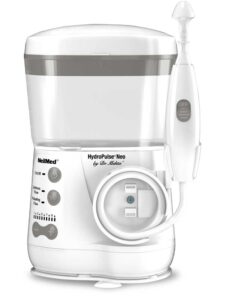Is it Allergy or Sinusitis?
Always check the pollen calendar when allergy symptoms start. Then you will know to start Nasalcrom before the pollen hits next year.
To reduce allergy symptoms:
Hot tea lemon and honey. Green or black. Drinking hot tea reduces allergy symptoms.
Avoid iced drinks.
Avoid getting chilled. Wear windbreaker for in and out air conditioning
Avoid spices.
In traffic, drive windows closed and air recirculated.
Never drive behind a diesel bus/truck.
Wear a mask or filter when gardening
Change clothes when you come in from the outside, so you don’t bring pollen into the house.
When you sneeze, or blow your nose, be gentle. Blowing your nose hard is just like rubbing your eyes too hard.
Reduce dust in bedroom. You can run a hepa filter during the day.
For outside activity, gardening and walking, go midday. Plants pollinate around 5 AM and 5 PM so around noon to three is “safe.”
Why dust proof?
A recent article in the Los Angeles Times quoted an authority that claimed dust proofing was overdone. The “authority” felt it was more important to use drugs than to worry about dust proofing the bedroom.
Having treated 10,000 plus patients with allergy and sinusitis, I must disagree here.
If you sleep in a dusty bedroom or work in a heavily dusty place, you can develop dust allergy or make an existing dust sensitivity worse. The body can be overwhelmed by so much allergenic product.
If you have a simple cold, the dust can add significantly to your symptoms. The dust didn’t bother you before the cold, but with the cold the dust adds significantly to the symptoms.
More important, if it is only dust allergy, you might not need any drugs if the bedroom is free of dust. To me, the goal is to get people well without drugs – if possible.
Suppose you are only allergic to Oak and on skin test you are not allergic to dust. Do you still need to dust proof? Yes. This is because allergy symptoms are a matter of arithmetic. If you take pollen at 2, add dust as a 5, you don’t reach 10 with symptoms.
But if the pollen reaches 5, plus your dust 5, then you have symptoms.
On the other hand, when the pollen count is very high, say at 10, even if the dust is absent, you will still have symptoms.
In theory, dust proofing should keep you allergy free about 75% of the time during the pollen season, esp if you rinse out the pollen and IgE.
Today we are more concerned about reducing allergy symptoms. Poor sleep during allergy season can take a severe toll. If symptoms are severe, you can end up with nasal cilia – the tiny cilia that remove dust and bacteria – exhausted. When the cilia don’t pulsate to remove bacteria, then an infection, including a sinus infection can develop. Allergy itself doesn’t cause sinus disease; it is when the cilia are exhausted after weeks of sneezing and nose blowing that an infection can occur.
It is true that certain medications are needed for allergy season, but it is also true that if you can reduce or eliminate those medications to let natural healing take place, the patient is better off. Therefore I recommend dust proofing to my patients.

